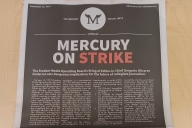You have /5 articles left.
Sign up for a free account or log in.
Has the push for faculty diversity in the sciences led to real gains? A new study of tenure attainment, faculty retention and time to promotion to full professor across four large land-grant institutions analyzed personnel records for assistant and associate professors from 1992 to 2015. It found that numbers of women and underrepresented minorities in science, technology, engineering and math fields increased substantially over time, but mostly for women and Hispanic faculty members and more slowly for black and American Indian professors. Time to promotion from associate to full professor took one to two years longer, on average, for women in the life sciences and agriculture, but not in engineering, the physical sciences or math. Notably, all minority faculty hired as assistant professors in the life and physical sciences and math between 2002 and 2015 earned tenure at their institutions. Professors in all these fields tended to stay at their institutions for 10 years or more.
“With low overall numbers of minority faculty, the impact that departures of even a few faculty can have on an institution is very large,” lead author Marcia Gumpertz, a professor of statistics and assistant vice provost for faculty diversity at North Carolina State University, told NC State News. “In fact, the numbers in this study are so low that it limits our ability to say anything definitive concerning retention and success for minority faculty. However, even a small study can demonstrate the importance of institutions and disciplines understanding their own patterns in order to evaluate and address disparities.” The study was published by PLOS ONE.









